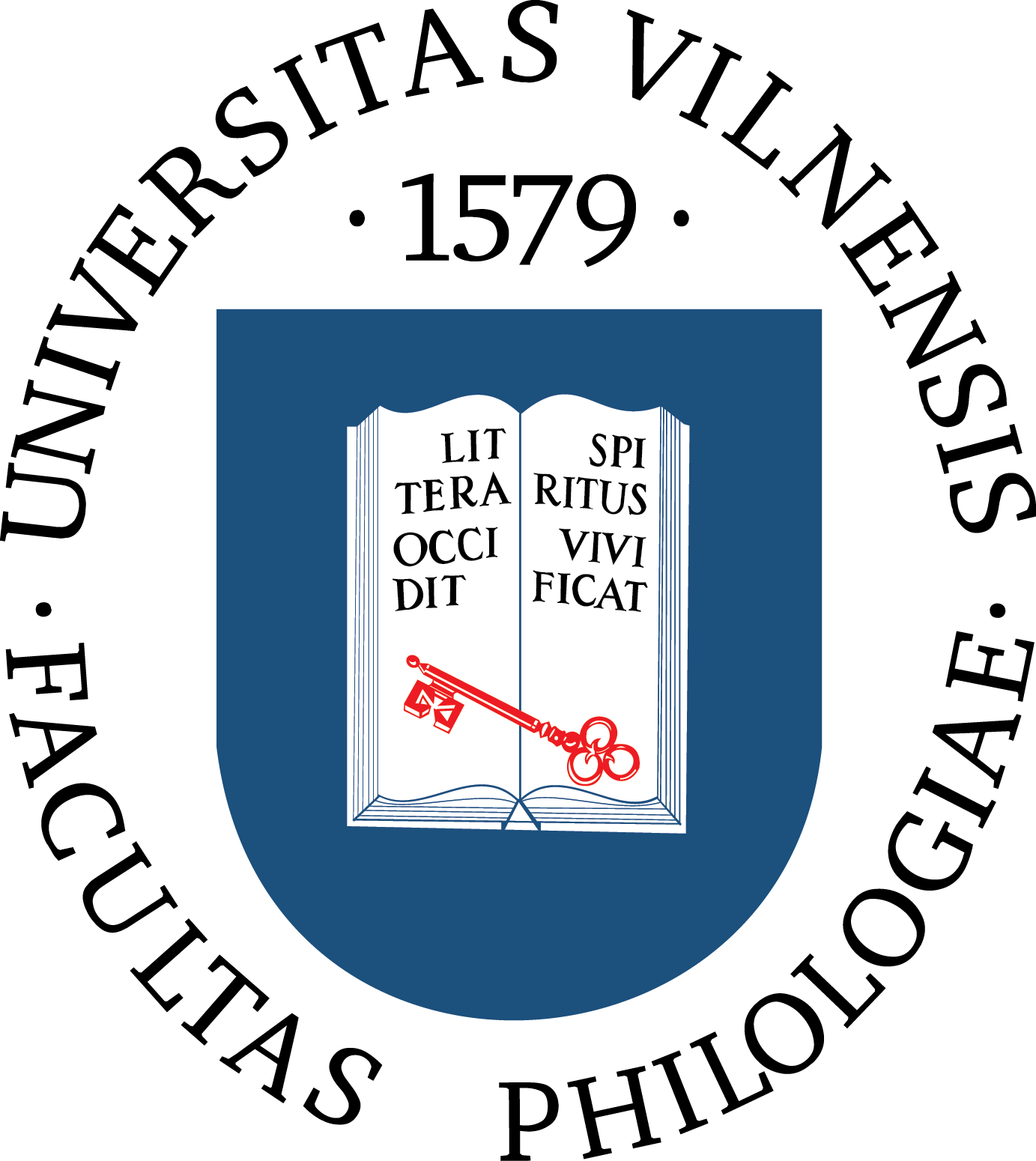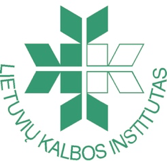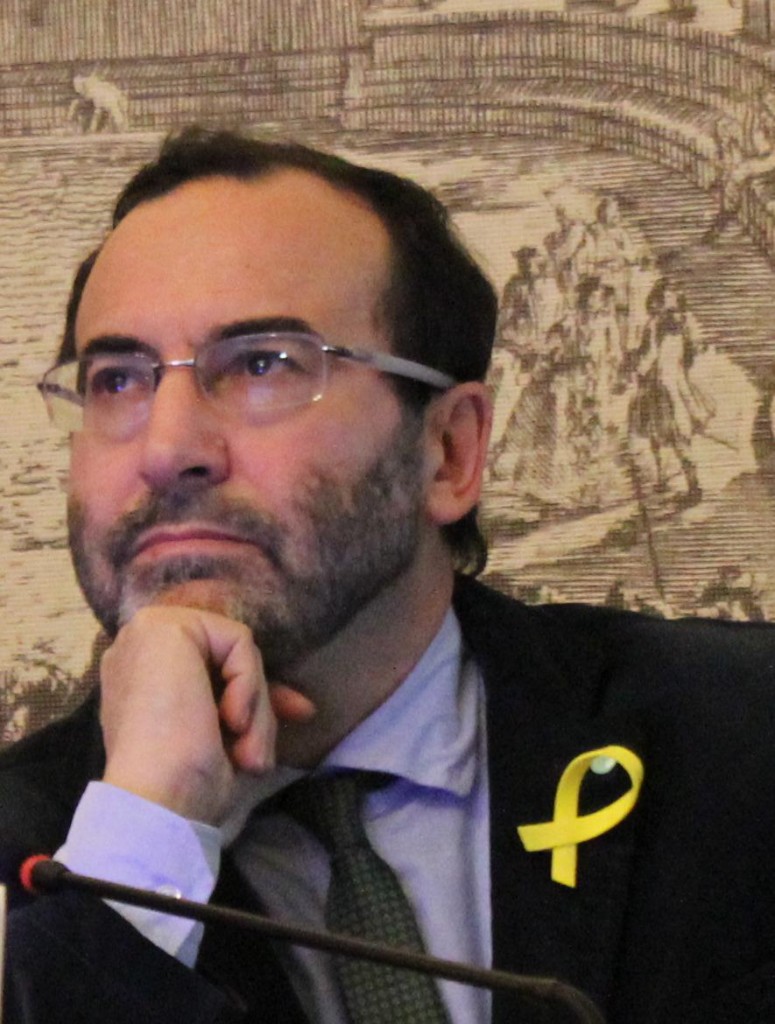
PROF. HABIL. DR. PIETRO UMBERTO DINI
Prof. Dr. habil. Pietro Umberto Dini(born on October 5, 1960 in Pietrasanta, Toscana, Italy) is a philologist and linguist specialising in Baltic studies. In 1980-1984 he studied at Pisa University and in 1983- 1984 at Vilnius University. From 1986 to 1987 he carried out an internship at Krakow University and in 1989 in Riga. Later on, he taught Linguistics at the University of Potenza (1988-1995). From 1996 to 1997 professor was awarded with the Alexander von Humboldt-Stiftung scholarship at the University of Göttingen. In 1997 he taught Baltic Languages at Oslo University. Since 1998 he has been a professor at Pisa University, and head of the Department of Baltic Philology. He was a visiting professor at different universities: in 1998 he took an internship at the University of Illinois in Chicago, in 2000 he taught at the University of California (Los Angeles), in 2007 and 2010 at Vilnius University (at the Department of Lithuanian Studies), in 2006 and 2010 he taught at the University of Frankfurt. Professor gave lectures and presentations in different cities too: in Vilnius, Bialystok, Krakow, Kaunas, Naples, Ferrara, Warsaw, Oslo, Udine, Trento, Rome, Kiev, Riga, Berlin Chicago, Moscow, Budapest, State College, Bologna, Wolfenbüttel, Los Angeles, Turin, Pordenone, Valencia, Frybure, Frankfurt, Pavia, Bone, Lugano, Venice, Madrid, Luxemburg, Pistoia, Vicenza, Villa Vigoni, Paris and others.
His main research interests include historical linguistics of Lithuanian and other Baltic languages, Prussian language, historical linguistics, interactions among Baltic and other Indo-European languages as well as historiography of Baltic linguistics.
He wrote a monograph L’Inno di S. Ambrogio di Martynas Mažvydas (1994), published a monument of written Lithuanian language H. J. Lysius Mažasis katekizmas (1993) and published studies of the history of Baltic languages (1993). He compiled Baltijos žiedas (1991) and together with Prof. Dr. Nikolaj Mikhailov, an anthology of Baltic mythology (1995). Together with Philip Baldi he prepared a set of Studies in Baltic and Indo-European Linguistics In Honor of William R. Schmalstieg (2004). His main work Baltic Languages was published in 1997 in Italian, followed by translations into Lithuanian and Latvian (2000), as well as Russian (2001). Dini’s latest books Foundations of Baltic Languages came out in 2014 and Baltų kalbų lyginamoji istorija in 2019. Professor has published several works in the field of history of Baltic languages: Džiakomas Devotas. Baltistiniai raštai (with Bonifacas Stundžia, 2004), Džiulianas Bonfante. Baltistiniai raštai (with Stundžia, 2008), as well in the field of historiography of Baltic linguistics: Aliletoescvr. Linguistica baltica delle origini. Teorie e contesti linguistici nel Cinquecento (2010), Prelude to Baltic Linguistics: Earliest theories about Baltic languages (2014) and Aliletoescvr. Prie baltų kalbotyros ištakų: teorijos ir jų kalbinė aplinka XVI amžiuje (2023); and in the field of Prussian linguistics: Ins undevd∫che gebracht. Sprachgebrauch und Übersetzungsverfahren im altpreußischen Kleinen Kathechismus (2014). He published W. R. Schmalstieg’s Studies in Old Prussian. A Critical Review of the Relevant Literature in the Field from 1975 until 2005 (2015), Foundations of Old Prussian. Philology and linguistics (2023). Other articles were presented in the book Baltų filologijos studijos. Rinktiniai raštai 1991-2007 (2010). With Mikhailov, Dini became a founder and editor of the international journal of Baltistics Res Balticae (13 volumes were published until 2016); since 2014 he is responsible for the series Studia Baltica Pisana (7 volumes published until 2024). Dini is a member of the Academy of Sciences of Latvia (2004), the Academy of Sciences of Lithuania (2007) and the Academy of Sciences of Göttingen (2010) and doctor h.c. of Vilnius University (2005). In 2002 Dini was awarded the Order of Gediminas, the Lithuanian Presidential Award, in 2010 he was awarded the Medal of the Baltic Academies of Sciences, in 2012 he received the award of the Lithuanian Minister of Culture Carry your truth and believe. He was awarded with Iglesias prize in 1998 (XXXVII Premio Iglesias in Sardinia for the book Baltic languages), in 2002-2003 he was awarded with Wilhelm Friedrich Bessel prize (Wilhelm Friedrich Bessel Forschungspreis), and in 2011 he received the Jānis Endzelīns’ prize. In addition, Dini received the prize of Poezijos pavasaris for translations of Lithuanian poetry and the prize for professionally translated works and popularisation of the Lithuanian language in Italy, Gerald Parks Translation Prize, Club Anthares, Trieste (2012).
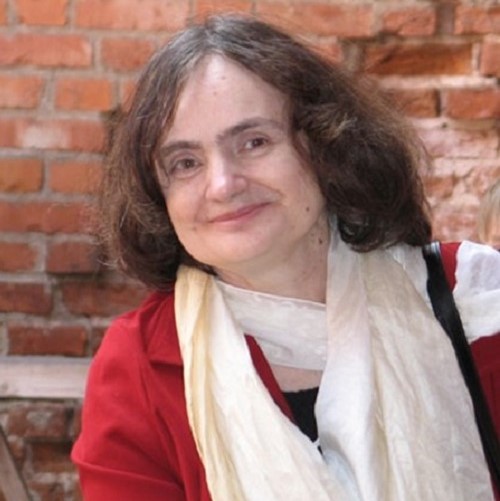
PROF. DR. LAIMUTĖ BALODE
Leading scientific researcher at the Latvian Language Institute of the University of Latvia former Director of the Center of Lithuanistics at the University of Latvia. Professor emerita of the Language Departments of the Faculty of Humanities of the University of Helsinki, former leader of the Baltic studies. Main scientific research area – Baltic onomastics, especially toponymics (hydronymics) and anthroponymics (published more than 250 articles, a monograph (together with Ojārs Bušs) about the origin of Latvian toponyms / “No Abavas līdz Zilupei“, 2015/). One of the authors of Lithuanian-Latvian Dictionary (1995), actively participates in several international projects. Recently, together with colleagues of the Latvian Languages Institute is working on a multi-volume Dictionary of Latvian place names.
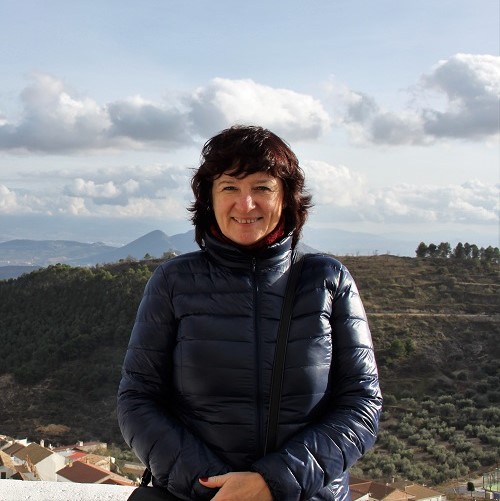
PROF. DR. ANDRA KALNAČA
Andra Kalnača is Tenured Professor and Senior Researcher of Latvian Linguistics at the Department of Latvian and Baltic Studies, Faculty of Humanities, University of Latvia (Rīga). Her research interests relate to morphology, morphosyntax and morphophonology, functional grammar, modality, and evidentiality. Her core work is focused on Latvian grammar and the theory of grammar. She is the author of several monographs and edited volumes, including Morfēmika un morfonoloģija (2004), Morfoloģijas stilistika (2011), A Typological Perspective on Latvian Grammar (2014), Latvian Grammar (2021; with Ilze Lokmane) and Insights into the Baltic and Finnic Languages. Contacts, Comparisons, and Change (2022; ed. by Helle Metslang, Miina Norvik, Andra Kalnača). Andra Kalnača is editor in chief of the periodical Valoda: nozīme un forma / Language: Meaning and Form
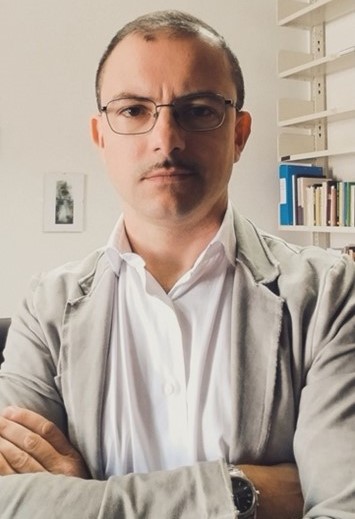
DR. ADRIANO CERRI
Adriano Cerri received a PhD in Linguistics at the University of Pisa (2015), where he specialised in Baltic linguistics and philology. He currently holds a position of Research Fellow at the Department of Philology, Literature and Linguistics of the same university. He spent research stays at Vilnius University and he has participated in national and international research projects in cooperation with the Lithuanian Language Institute, Klaipėda University, and other Italian institutions. His main research interests focus on numeral systems, morphosyntactic change, diachronic semantics. He has published a monograph on the morpho-syntactic development of Baltic numerals: Morfosintassi storica dei numerali baltici (Pisa, 2023); and edited two collections of papers: Intersezioni baltistiche (Novi Ligure, 2021; with Diego Ardoino), and Declinazioni europee del pensiero linguistico, politico e religioso di Lutero (Novi Ligure, 2023; with Patrizio Malloggi). He is also interested in translation studies and has prepared the first Italian edition of the poem Metai by Kristijonas Donelaitis (Le Stagioni, Novi Ligure, 2014).
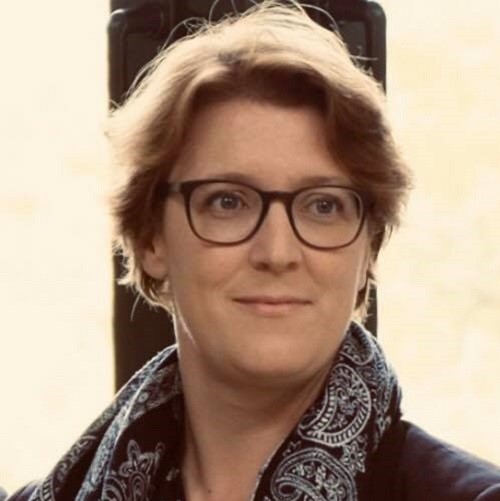
DR. CHRISTA SCHNEIDER
Christa Schneider is a researcher and lecturer at the University of Bern (Switzerland), specializing in historical sociolinguistics, language history, and digital humanities. She holds advanced degrees in linguistics from the Universities of Bern, culminating in a Ph.D. in Sociolinguistics, with the dissertation focusing on dialect variation. Research interests span not only across different linguistic foci but also include early modern Swiss and British/Scottish history, particularly sociohistorical analyses, as well as multilingualism and language change in Swiss, Lithuanian, British and Scottish contexts. Lately, she has engaged extensively in interdisciplinary projects, leveraging methods from machine learning and natural language processing to analyse historical texts. She is currently working on the second book, which aims to synthesize historical sociolinguistics, language history, and historical research to explore the language history of Switzerland comprehensively.
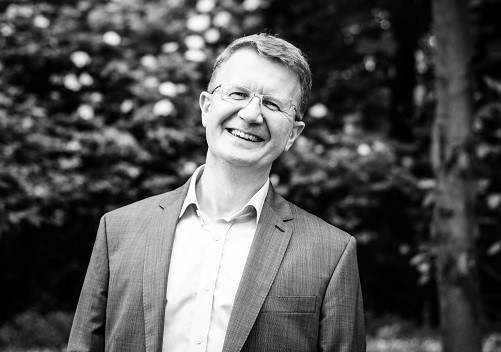
DOC. HABIL. DR. VAIDAS ŠEFERIS
Born in 1974 in Tauragė, he graduated in Lithuanian Philology from Vilnius University in 1999 and defended his doctoral thesis at the University of Vienna in Austria in 2003. He is currently working in two positions: associate professor at Masaryk University in Brno, where he heads the Centre for Baltic Studies, and researcher at the Institute of Lithuanian Literature and Folklore in Vilnius. His main area of research is the life and works of Kristijonas Donelaitis.
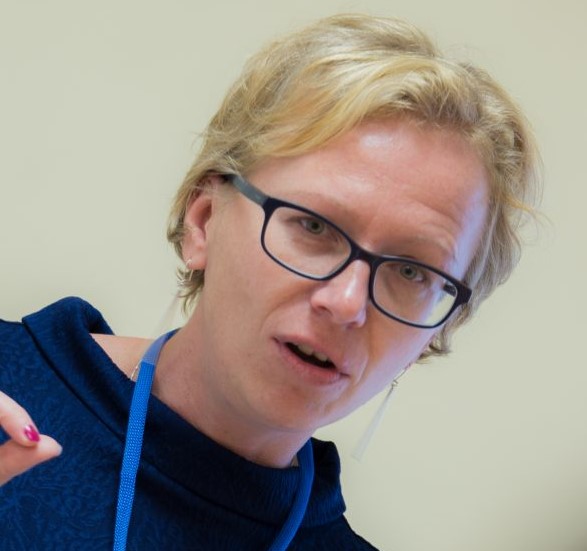
DR. JOWITA NIEWULIS-GRABLUNAS
Jowita Niewulis-Grablunas is an assistant professor at the Department of Unique Philologies of the Institute of Applied Linguistics, Faculty of Modern Languages at the University of Adam Mickiewicz in Poznań. Her research interests are related to linguistic diversity, especially diversity among national minorities. She researches the linguistic diversity of Lithuanians living in Poland – the Dzuks, their linguistic prestige and the linguistic landscape of the Suwałki region.
